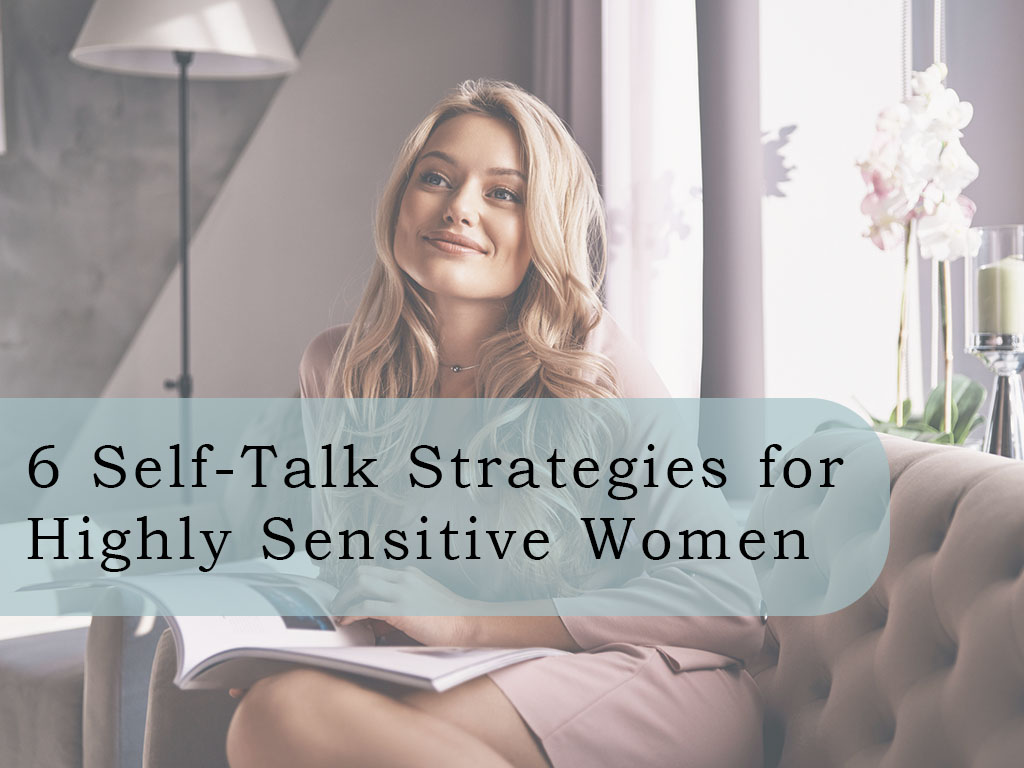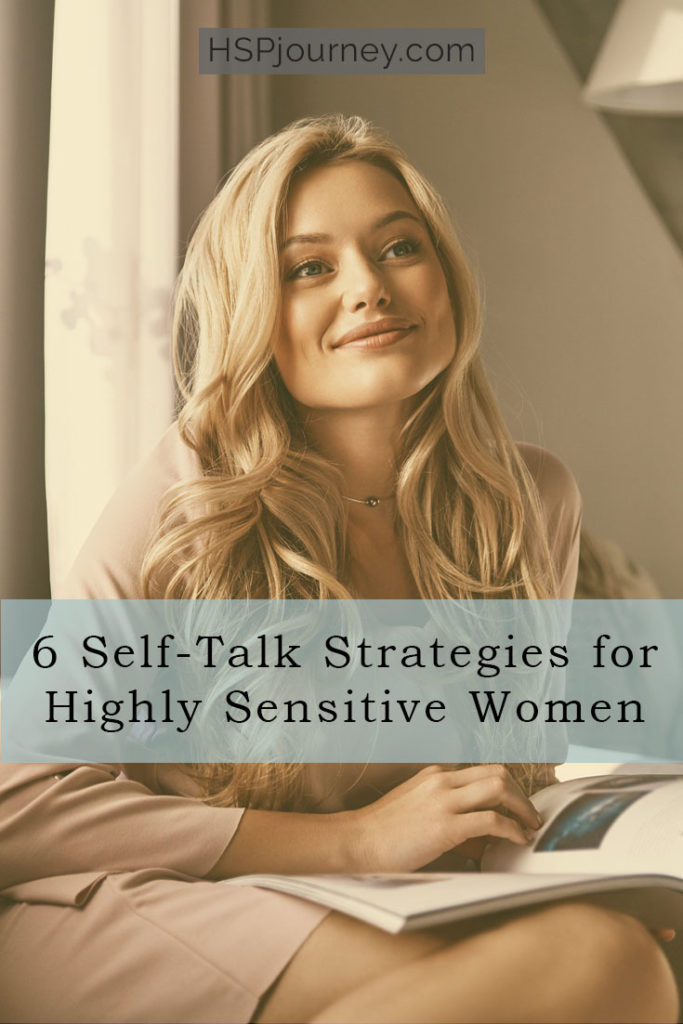With what’s happening in the world, we are being called to have more empathy towards each other. It is true that the world needs more empathy, but not from Highly Sensitive People (HSP). Highly Sensitive women need self-talk strategies more than anything else. Let me explain.
HSPs already feel so much empathy for others and for the world. We are wired to process considerably more information than regular folks, and that includes other people’s feelings. In fact, research shows that we think about how others feel and what they need more than we think about ourselves.
Our sense of empathy is on overdrive. If empathy is a muscle, we’re world champion bodybuilders. What we need, as HSPs, is the ability to balance our needs with those of others, and to learn how to practice more compassion.

My 6 self-talk strategies for highly sensitives:
(You can try these for yourself)
1) I love myself and my life.
2) I keep myself on my radar.
3) I practice healthy empathy with boundaries and healthy compassion with boundaries.
4) I am just as important and as precious as other people.
5) My life needs me to stay at the helm of it.
6) There are so many ways that I can be compassionate, empathetic, and loving and still stay in the center of my own life.

Looking for an HSP-Trained coach to help you align your life with your priorities?
Through my Highly Sensitive Person (HSP) certification with the Nickerson Institute, as well as being an HSP, I offer HSP coaching to develop specific goals around your HSP needs. We HSPs frequently deal with anxiety and overstimulated nervous systems that prevent us from achieving peace and attaining our life goals. HSP coaching with me includes a detailed review of your sensitivities and a mutually-desired plan for growth and management of this superpower to shift negativity and begin seeing yourself as the hero of your own story. (Affordable monthly coaching begins at $150/month.)
What’s the difference between empathy and compassion?
What’s the difference between empathy and compassion? I’m glad you asked because they are very different. Here is the difference between empathy and compassion as I see it: Say that someone you know has fallen into a big, dark hole. In a state of compassion, you love them and you are of service to them if that’s possible for you. You are present. You can throw down a ladder and encourage them to climb up. You can drop down a care package with food, a flashlight, blankets. You get what I’m saying. You remain solidly grounded in yourself and firmly within boundaries, while still loving them and acting compassionately.
In a state of hyper-empathy, we feel so bad for this person, we feel their suffering or pain. We think it’s our job to fix it or save them. We jump down into the hole with them. Now there are two people stuck in this hole. That’s not helpful to the other person, and not helpful to ourselves either. You are no longer in the center of your own life. You are living out someone else’s life. If you have ever thrown yourself into someone else’s hole, you know that it’s really of no help ultimately. Plus, it’s rather exhausting and confusing.
Am I Connecting Emotionally or Codependent?
While I’m in this hole, while I’m in this other person’s life, who’s taking care of my life? Who’s keeping it on course? Imagine a boat captain stuck down in the galleys while the vessel has no one holding the helm. There’s no way to stay on course if you are not managing your own life. Other people are way too much on a highly sensitive woman’s radar. We can adjust our empathy dial and choose wisely when we help and how much we help. We can practice healthy empathy with boundaries and healthy compassion with boundaries too. We can be attuned to the needs of others while ensuring that our own needs are front and center. It is from a grounded center that we can move into the world and be of service to others.
Think of it as a wheel. You are the center. The spokes extend to where you put your love, attention, and energy. You, my beautiful, empathetic, highly sensitive person, remain firmly in the center.
Using these six self-talk strategies from my book for highly sensitives, you can take just a little of what it feels like to take care of yourself, honor your needs, and protect your energy as you care for those around you.
Be sensitive, be free
*This post contains affiliate links and I will be compensated if you make a purchase after clicking on my links*






[…] is an opportunity to work on self-boundaries. Acknowledge that you are responsible for making your space as healthy, comfortable, and productive […]